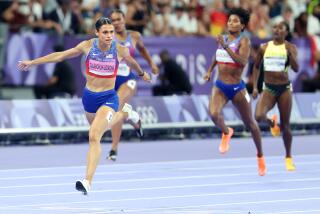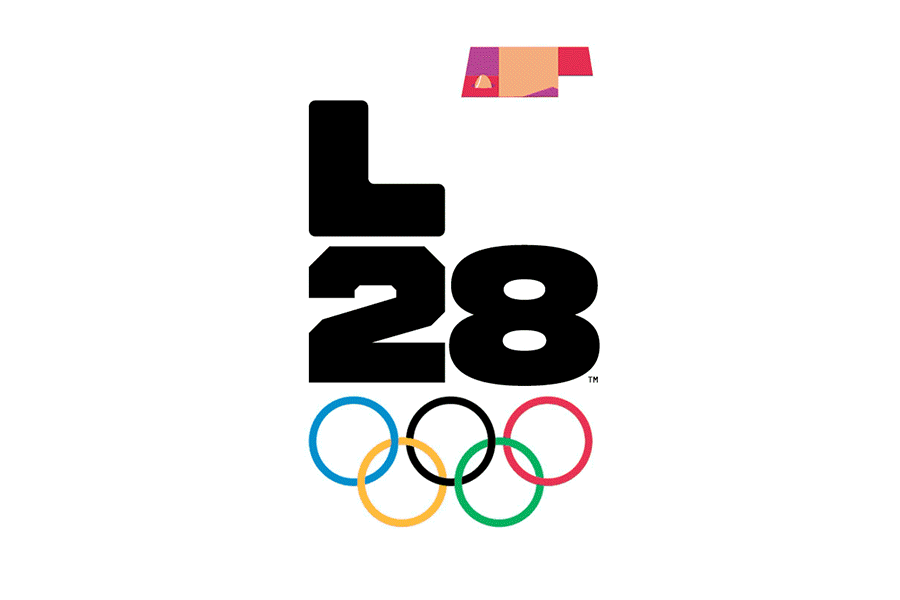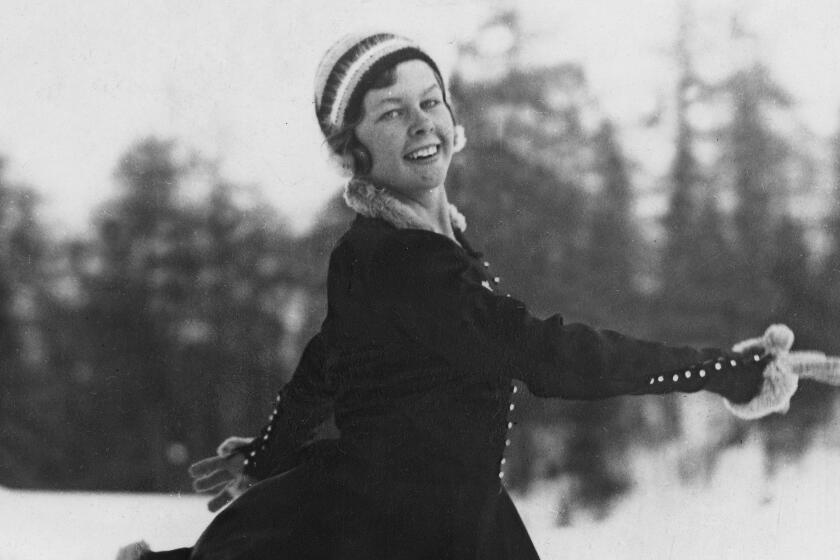Swiss Runs Are Like Clockwork : Bobsledding: U.S. two-man team seventh with Walker. Germany takes silver and bronze.
Football players on sleds, the U.S. experiment in bobsledding, was put on ice Sunday until, hmm, maybe 1994.
The top U.S. two-man bobsled team, composed of former Morehead State wide receiver Brian Shimer and Minnesota Viking running back Herschel Walker, finished seventh in a 46-sled field, proving once again that the Americans need to study their game plans a little more.
It’s still basically a European-dominated sport. The Germans, who finished second and third, probably could win medals if they wore lederhosen and pushed a beer truck down the track.
The Swiss, with driver Gustav Weder and brakeman Donat Acklin, took the gold by sliding down the track in 4 minutes 3.26 seconds for four runs, edging Germany I by .29 seconds. Germany II won the bronze.
The United States, which once dominated in bobsledding, was left on the sidelines, wondering how to change its fortunes.
“We expected a little bit more,” Walker said.
“It’s tough to lose, I don’t like to lose, but I’m not just going to go home because of it. I’ve lost in a lot of things and won in a lot of things. I still have a positive attitude.”
Maybe somebody should have known better. Maybe making a former brakeman a driver, pairing him with a pro football player, dropping them into a sled and then letting them make something like the Olympics the place for their second race was the sort of strategy destined for trouble.
Shimer and Walker are just getting to know each other. Until they jumped in the sled together in Saturday’s first Olympic heat, the only other time they had teamed up was for one race last year.
Walker’s duties with the Vikings keep him off the World Cup circuit, but Shimer said that’s just the way it is.
“I wish we could have had a race, but there weren’t any,” he said. “I don’t think our showing here was terrible. I just don’t think we were the best we could be.”
Problems began early for the United States, the first push on the first day in the first heat. Walker’s lack of racing was apparent. He ended his push and jumped into the sled too soon, and Shimer’s driving and three other solid runs could not overcome that early deficit.
U.S. Coach John Philbin said the conditions had been nearly perfect for a great run:
--USA I would be the second sled to race, so it had the advantage of a clean track.
--It would begin snowing four sleds later, which would slow everyone else.
“That was our cue to put it all together and let everybody else play catch-up,” Philbin said. “That was when we had to nail it. There was real medal potential.
“Unfortunately, Herschel got on early that time . . . two steps after Shimer instead of three or four.”
Walker said he isn’t sure whether he’ll compete in the 1994 Games.
“There’s no doubt I had fun here,” Walker said. “I love competition. If the Lord is willing and I’m still capable of doing the things I’m doing, you’ll probably see me back.”
Probably?
“I’m a person that never predicts in advance. I don’t know what’s going to happen. I’ve always done so many things that I don’t know what I’ll be doing next or where I’ll be.”
More to Read
Go beyond the scoreboard
Get the latest on L.A.'s teams in the daily Sports Report newsletter.
You may occasionally receive promotional content from the Los Angeles Times.





